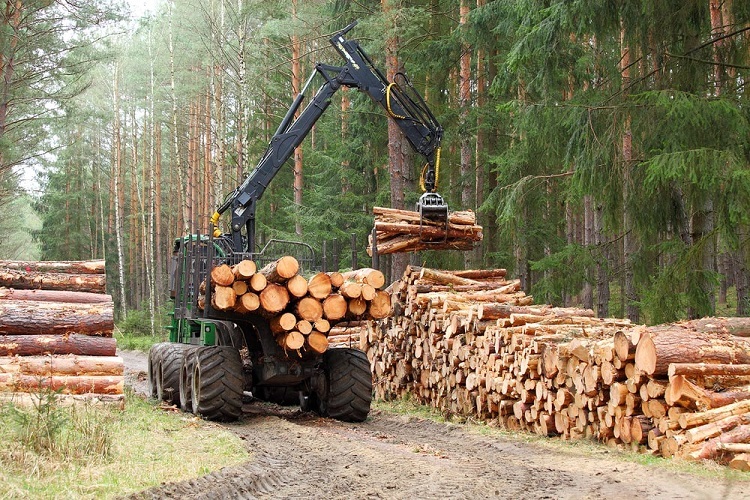Saving money is the name of the game in today’s economy. Making the most of our fuel, time, and other resources are all ways to accomplish this feat. When it comes to harvesting your timber, there are 4 key ways to save yourself some greenbacks in the process.
Ever wonder how to save money when harvesting timber? There are various ways to do it, including minimizing expenses associated with road maintenance and labor costs. It would be worth striving for any goal as long as we can make our business more profitable.
Table of Contents
1. Harvest multiple trees at one time.
The best way to save money when harvesting timber is using a single loader. Loggers have found that they can complete this task in half the time and at only 1/10th of what it would cost if you were doing things by hand or with 2 loaders operating simultaneously– which isn’t even necessary most times anyway! The reduced fuel consumption also means minor wear and tear on equipment, so there’s no need for costly repairs down the line, reducing operational costs even more than before.
2. Harvest your timber during non-peak seasons.
Logging during off-peak seasons can be a huge money saver. For example, rather than cutting your trees in the spring when many people harvest timber for various reasons, harvest them during the winter months. At this time of the year, there is lower competition from other mills looking at how much wood they need before summer officially starts.
3. Use pest control to prevent future damage to your trees.
Pest control is an absolute must for anyone who’s trying to salvage or conserve their timber. Tree borers and other pests will be the death of any tree if left unchecked, but pest controllers can stop them before it gets out of hand. Invest now to save yourself big bucks later down the line by preventing additional damage caused by these pesky creatures. Maintaining healthy forests today saves tomorrow’s lumberjack jobs well into perpetuity – so don’t let this one go unaddressed just because you might not have noticed there were issues yet.
4. Leave enough trees between your harvest site and the nearest body of water.
This shows that you are a responsible landowner, which will help prevent government agencies from using control measures on your property to protect fish habitat or other natural resources.
Leaving 1 or 2 trees per acre will help preserve the growing habitat for fish and wildlife. This incentive will be one of the main reference points when getting tax credits for harvesting timber on your property. According to the government, it costs money to plant new trees compared with reforesting a harvested area in a non-sensitive area where additional seedlings are unnecessary.
When harvesting timber, there are many ways to save money and make the most of your resources. The four critical practices described above can help you accomplish this goal while improving your wooded property efficiency. Minimizing expenses is always a great idea because, in turn, it will benefit you when looking at your final numbers from last month’s production report.


